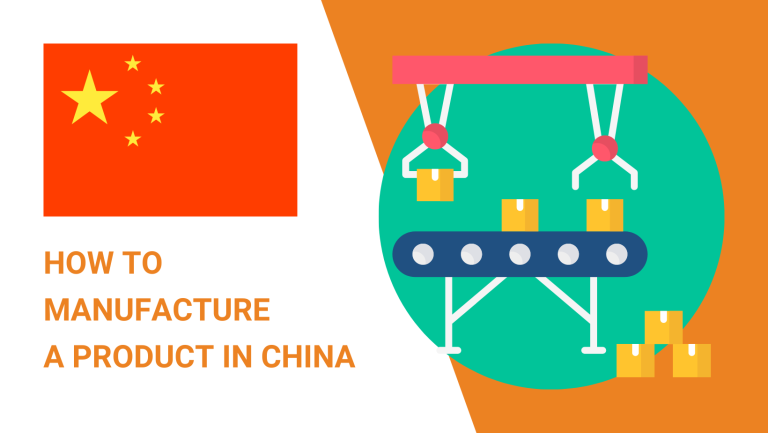The manufacturing sector in China is renowned across the globe for its efficiency and vast capabilities. So much so that the country now holds pride of place as a manufacturing hub for many major international brands.
For most entrepreneurs, however, the process of manufacturing a product in China can seem complex and daunting. Where do you begin? How do you find the right manufacturer for your product? Can you really manufacture quality products in China?
If any of these questions are keeping you up at night, we have just the solution for you. In this guide, we discuss everything you need to know about how to manufacture a product in China and offer tips to get you through each step.
Read on.

Why China?
Every continent in the world has manufacturing industries, so why should you outsource your manufacturing to China?
The answer is simple. China presents numerous advantages that you may not enjoy in other jurisdictions. They include:
Production Technologies

China is quite advanced in terms of technology and has top-rated factories that are fitted with cutting-edge equipment.
Consequently, most Chinese manufacturers are well-equipped to achieve complex product designs that may be a tough climb for manufacturers in other regions.
Affordable Manufacturing Costs
The Chinese government supports the manufacturing sector by offering favorable industrial policies. Most factories also capitalize on economies of scale to keep their operating costs low and can subsequently offer you affordable manufacturing prices.
Manufacturing Capacity
Admittedly, not all factories in China are large-scale outfits but most have a high manufacturing capacity. The advantage here is that you can always find a manufacturer that can produce whatever quantities of product you need.
A Global Frontier
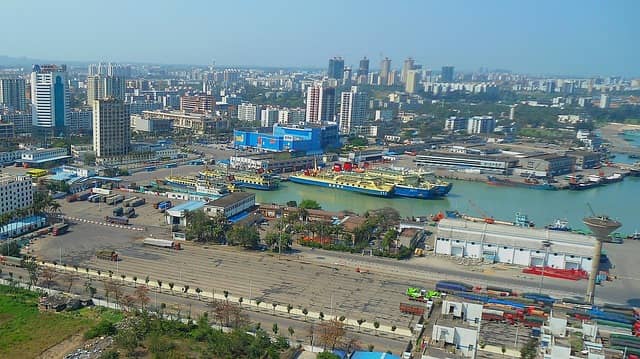
China has a robust shipping network. It is now also connected to Europe via the China-Europe rail as well as the ongoing New Silk Road project. Additionally, most major cities are internationally accessible by air.
In light of this, manufacturing your product in China makes it very easy for you to start selling it in other markets across the world. You would only need to acquire a permit to sell and then choose a suitable cargo delivery option.
How Much Does It Cost to Manufacture a Product in China?
The cost of producing various products in China varies from one to the next. Nevertheless, the bottom line is that, in most cases, the cost of production in China is cheaper compared to other regions.
As we mentioned above, government subsidies, favorable taxation, and economies of scale facilitate these lower costs of manufacturing. Other contributing factors include:
- Technology- automated production is often cheaper than manual approaches, more so for bulk production.
- Affordable labor- compared to other regions, the cost of labor in China is lower. Given that manufacturing is labor-intensive, affordable labor presents a significant cost advantage.
- Access to raw materials– raw materials are easily accessible in China both locally and as affordable imports from the larger Asian region. Moreover, Chinese manufactures enjoy favorable prices because they order such materials in bulk.
Preparing on How to Manufacture a Product in China
Getting your ducks in a row could go a long way in ensuring that you have an easier time working with Chinese manufacturers. To that end, make an effort to:
Refine Your Product Concept

A product concept is often viable in theory but this does not always mean it can be manufactured. Therefore, take some time to test and evaluate your product design extensively before you begin pursuing manufacturers.
One way to achieve this would be to work with a manufacturer or industry expert to produce a prototype. The benefit of a prototype is that it gives you complete visualization of an item and allows you to evaluate its functionality.
Research the Product Market
Researching the product market can offer you some insight into how to optimize your product and ensure it is well-received. You could explore such as:
- Who are the competitors in your product market?
- What type/design of the product are they offering and how can you make yours better?
- What are consumers’ needs in relation to the product and how can you meet them?
- What are the prevailing market prices of the product?
Investigate Manufacturing Trends in the Market

Most industries have notable manufacturing trends. For example, most major clothing brands have their products manufactured in Asia because it is the most financially sound approach.
Understanding such trends could give you some clarity on whether China is the right manufacturing destination for your business. In some unique cases, like countries with protectionist policies, you might even find that local manufacturing is your only option.
How Do I Find a Manufacturer For My Product in China?
With all your matters in order, the next step would be to find a suitable and reliable Chinese manufacturer to work with. Lucky for you, there are numerous avenues you can take to achieve this goal. Let us examine a few of them.
Trade Shows
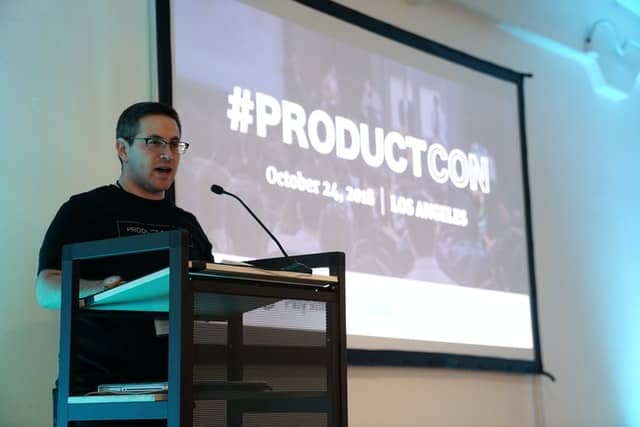
Chinese manufacturers hold numerous trade shows both in and out of China every year. An example of this is the Canton trade fair that hosts thousands of suppliers and manufacturers from almost all sectors of production.
The beauty of these events is that they bring together hundreds of manufacturers per sector under one roof. You would thus have a chance to consult with and compare different manufacturers and also assess different samples of their works.
Online trade fair guides provide lists of dates and venues for these trade fairs. Once you identify an event that is convenient for you, try to visit their website to find out when manufacturers in your product industry will be participating.
E-commerce Platforms
E-commerce platforms like Alibaba are business-oriented and are centered around connecting businesses and manufacturers. You can, therefore, run a search on such platforms and make a shortlist of potential manufacturers to reach out to.
Once you have narrowed down your list of top manufacturers, take time to investigate them further. Some middlemen pose as manufacturers to make a profit and so it would be prudent to ask the manufacturers for proof of registration.
Work With a Trading Company
A trading company is a firm that organizes to have your product manufactured at a factory, receives the completed order, and then sells it to you at a markup. In a simpler term, they are middlemen.
The advantage to using a trading company is that they are often well-connected and know where to find manufacturers. They may also be convenient if you would like small product batches or are manufacturing a limited edition product.
On the downside, you would have little control of the manufacturing process and would pay a higher price than if you were dealing directly with the manufacturers.
Partner With a Sourcing Company

A sourcing company works as an intermediary between you and product manufacturers in China.
Take, for example, that you would like to manufacture air fresheners. You would:
- Find a trusted sourcing agent
- Explain the type of product you would like to manufacture
- Mention any other qualities or service options you are looking for in a manufacturer
In return, the sourcing agent would:
- Reach out to manufacturers in China that produce air fresheners
- Discuss a rough idea of the design and quantities you require
- Request a price quotation for the aforementioned services
After the inquiries, the sourcing agent would share with you their findings, and you can proceed to select a manufacturer.
This approach is much easier because the sourcing agent does all the research and consultations on your behalf. You would also avoid the challenge of language barrier and a good sourcing agent could even negotiate fair prices on your behalf.
However, these sourcing services come at a fee, and finding a reliable sourcing agent can be quite challenging in itself.
Consult the China Chamber of Commerce
Most countries have Chambers of Commerce. They are bodies set up to promote trade both locally and internationally.
If you reach out to the China Chamber of Commerce, they could offer you lots of helpful information regarding manufacturers in your product niche.
More importantly, the information you receive from a Chamber of Commerce is usually verified and from official government channels. As such, you can use it as a vetting tool even for manufacturers recommended or sourced via other methods.
Factors to Consider When Negotiating with Your Manufacturer in China
Creating a working relationship with your product manufacturer entails agreeing on terms and conditions of how your business dealings will run. The safest approach to this would be to negotiate and have both parties commit to a contract.

You could negotiate and advocate for:
- Fair prices- manufacturers, unlike middlemen, have a direct say over the prices that they can offer you. Take advantage of this and negotiate fair production rates. Capitalize on the fact that this will be a long-term relationship.
- Favorable terms of payment- how frequently will you pay the manufacturer? Consider options like per order or quarterly payments. Request credit if you need it.
- Methods of payment- choose a payment platform that is ideal for your business and the manufacturer too. If you are not a China-based entrepreneur, keep in mind that there will be a currency difference and make your choice accordingly.
- Lead times- be clear about the timelines within which you prefer your product orders to be processed and delivered. Try and agree on solutions for the Chinese New Year period too as it disrupts normal operations in factories in China.
- Raw materials- ideally, the raw materials used by your manufacturer should be suitable for your product design/formula. They should also offer you tangible assurance that the materials are ethically sourced.
What Are the Disadvantages of Manufacturing in China?
This guide would be incomplete if we left out the challenges you may face while manufacturing your product in China. Let’s get it to that, shall we? Here are some problems to look out for and avoid.
Intellectual Property Theft
A good product idea is worth its weight in gold and more. As such, some sourcing agents, trading companies, and even manufacturers could easily exploit it to their advantage once you share it with them.
If that happens by the time you introduce your product to the market, they may very well have beaten you to it. With this in mind, arm yourself with tools of intellectual property protection. They include:
- Non-disclosure Agreements- these are contracts that prohibit the other party from sharing your product concept with anyone else whether orally or using drawings or prototypes.
Note: due to the legal structure of intellectual property law in China, a typical NDA would not be sufficient. They use an alternative document known as an ‘NNN’. It protects your intellectual property based on ‘Non-Use, Non-Disclosure, and Non-Circumvention’.
- A registered trademark- registering a trademark ensures that none of the parties you share your brand identity ideas with can try to use them as their own.
- A patent- if you are introducing a novel product, register a patent to restrict your manufacturing partners and even your competitors from replicating your formulation or design.

Quality Control
In most Chinese factories, output and low costs can sometimes be prioritized over quality. As a result, finding a manufacturer that maintains top-notch quality standards can be quite difficult.
Customer Prejudice
It is a very common perception that products manufactured in China are low quality and cheap. Some customers are also averse to brands manufacturing in China for ethical reasons such as poor labor conditions or its impact on local jobs.
Winning such customers over to get them to buy products from your brand could prove difficult.
Supply Chain Delays
As evidenced by the Covid-19 pandemic, any upheavals experienced in China could have a ripple effect on your business. Shipping challenges and festive events can also majorly disrupt your supply chain.
Consider having a contingency plan for such eventualities.
Language Barrier
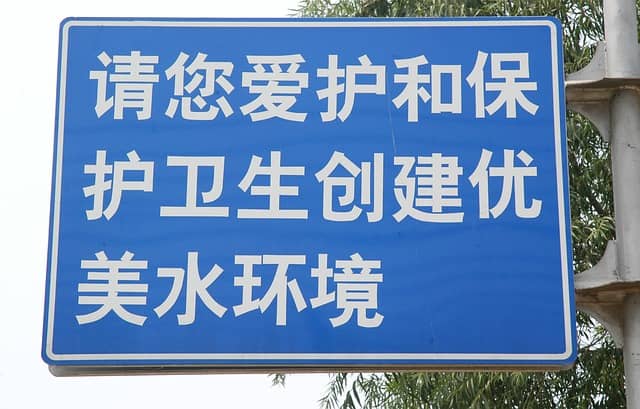
The national language in China is Mandarin. Most businesses transact in it as it is the language spoken by all citizens.
If you do not read or speak Mandarin, lots of important information can get lost in translation. It also makes it hard to negotiate or generally communicate with manufacturers.
Tips on Choosing a Suitable Manufacturer For Your Product in China
First, whittle down your list of manufacturers to a handful of top picks. Once that is done, you can reach out to them or visit them to find out exactly what they offer and judge which of them would be a good fit.
Below are some fundamental qualities to look out for as you compare Chinese manufacturers for your product.
Affordability

The cost of production significantly impacts the price of a product; the higher the cost of manufacturing, the higher the price.
As manufacturers provide you with price quotations, use those figures to calculate how much you would sell the product for (i.e., cost+markup). Now compare those prices to the prevailing market prices you discovered when researching the product.
It would be best to work with the manufacturer that offers you a fair cost that still accommodates top-quality production and allows you to sell at a market-friendly product price.
Services Offered
What are your immediate manufacturing needs? Aside from production, would you require packaging? Will you require drop shipping services? How about warehousing or just-in-time delivery? Make a list of such needs and take note of the manufacturers that meet them.
Be visionary too. For instance, if you plan to manufacture skin care products, you may want to expand your business into make-up interests in the future. It would therefore be best to aim for a manufacturer that offers you the flexibility to grow your brand.
Quality

For many years, the ‘made in China’ tag has been associated with poor quality merchandise. However, contrary to popular belief, products made in China are not unanimously sub-standard. It all comes down to the manufacturer you pick.
Prioritize manufacturers that have stringent quality control systems. More specifically, ask about the evaluation or testing methods that they use. The responses or demonstrations you receive will tell you all you need to know.
An even better quality check would be to request samples of their products. Some factories may charge you for the samples but it may be a worthwhile expense.
Minimum Order Quantity
Remember the economies of scale we mentioned? Factories achieve them by imposing minimum order quantities. Here is how it works.
In manufacturing, producing products in bulk is often cheaper than producing in small quantities. This is because ordering huge amounts of raw materials attracts discounts.
Additionally, processing one large batch of products takes fewer resources than processing multiple small batches in several cycles.
Subsequently, a minimum order quantity is usually the smallest quantity of a product that a manufacturer can produce and stay within their profit margins.
Estimate how many product units you would like to manufacture in the beginning. Further, consider how that figure may grow or decline over time. Use this information as a yardstick to ensure that your potential manufacturer has an MOQ you can work with.
In some instances, MOQs are slightly negotiable and a manufacturer can adjust it to suit your needs.
Shipping
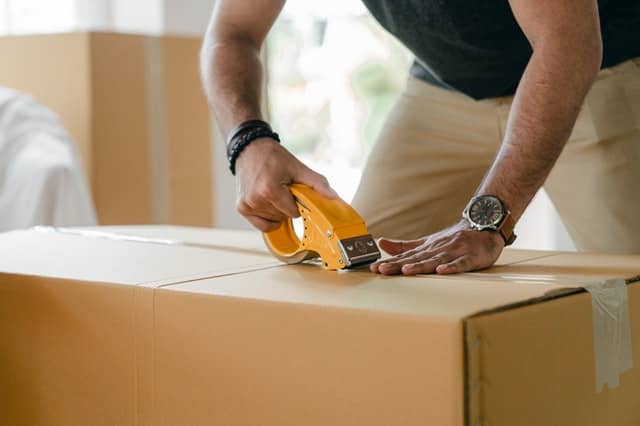
While shipping is not a direct part of the manufacturing process, it is still a matter that you will have to coordinate with your manufacturer.
Look out for manufacturers that ship to your selling market or can coordinate shipping with trusted shipping service providers.
Certification
A credible manufacturer should have formal authorization from the government and should be able to provide their registration details for confirmation. Failure to verify these details could, later on, have terrible legal repercussions for your brand.
Final Thoughts
Manufacturing a product in China under your own brand is an exciting prospect that can also be highly lucrative. You only need to understand the dynamics of the China manufacturing sector so that you can navigate it appropriately.
On the other hand, at NicheDropshipping, we understand how vast the manufacturing sector is in China. Even with all the facts in hand, factors like language barriers and time constraints can make it hard to get your production goals in motion.
We aim to bridge this gap for our customers by liaising with top-rated manufacturers on your behalf. We can negotiate fair rates for you and assign you an agent to handle all your correspondence. Furthermore, we offer many other value-adding services such as:
- Warehousing after your products are manufactured
- Dropshipping
- Worldwide fulfillment
- Quality control on your behalf
- Brand packaging
Are you ready to bring your product to reality? Contact us today and let us help you get it done.
